How nice for the Province to demand housing targets at exactly this point in time.
This is what the chief executive at Large & Co said last year:
"“This is why the province is stepping in — Minister David Eby is saying, come the fall, the hammer’s going to fall,” said Kim Colpman, chief executive at Large & Co., the company that had proposed the Quest building at 2326 Oak Bay Ave. The project has been in the works since 2017. “I believe he thinks they’re not doing their job to get houses to market,” she said."
I wrote this letter in response to that last year:
""Don’t blame Oak Bay for a national problem" [March 29, 2022 - Times Colonist]
Also published in the Oak Bay News as: "Oak Bay a scapegoat for housing crisis"
Large & Co is a member of the UDI development and real estate lobby and it was the UDI that asked the Province to introduce the housing targets.
""Oak Bay council finally, unanimously, approved condo project The Quest after more than 10 years of rejections.
In the end, it took just a minute for Oak Bay council to approve its most contentious and controversial development, and Large and Co. developer, Pam Coplman, can’t believe it’s finally happening.
“Well, thrilled. I mean there is nothing else to say,” said Coplman on Thursday. “It’s been 10 years, and it actually still feels a little surreal. It doesn’t feel like it’s happened. It’s a great feeling to actually move forward.”
First proposed by Large and Co. Development more than a decade ago, council rejected the four-storey condo development several times, including in 2022, when councillors refused to allow a public hearing.
But Coplman persisted, and says the timing worked in her favour.
“Honestly I think it’s political. When you have the pressure from the province, and also the community, they really want housing of all kinds, they just can’t afford to say no,” Coplman said.
Earlier this year, the province announced housing targets for municipalities on its so-called ‘naughty list’ that are lagging on housing, including Oak Bay, which has a goal of building 660 units over the next 10 years.
B.C. Housing Minister Ravi Kahlon says the province’s goal is to build more housing.
“We have legislation coming this fall which will allow up to four units on single family lots, transit-oriented development, So there is a whole host of things that will come to ensure that local governments meet their targets,” he said.
Oak Bay Mayor Kevin Murdoch says this decision proves the municipality is moving in the right direction.""
Quoted from CHEK News article Oct 12, 2023 "Oak Bay council finally approves project after 10 years".
It should also be noted that the municipality of Oak Bay is a paying member of the UDI and Kevin Murdock was the mover of a motion at the CRD several years ago that gave the UDI a permanent seat on the Regional Housing Advisory Committee along with a number of other organizations/lobbies. All of those organizations/lobbies with permanent seats on that committee in one form or another are paying members of the UDI.
Similarly, 2 days ago, the Province announced the creation of a digital advisory council, where the UDI and other organizations have a seat.
How can the media practice unbiased, independent research and journalism on issues like Real Estate and development when they are an official media partner and member with their lobby?
How can the media be considered local, when major international money is flowing as a conduit through these sectors, thus changing the urban landscape forever in the interests of global finance?
To quote Glacier Media’s website:
https://www.glaciermedia.ca/sectors/real-estate
“Glacier Media offers the largest residential and commercial real estate exposure in Canada, connecting advertisers with millions of buyers and sellers through our digital and print network.
Our multi-channel marketing solutions are spearheaded by REW, Canada's leading portal for real estate listings, new home developments and property insights.
Get results for your business with Glacier Media's custom website design, content creation, social media, digital and print advertising, and search engine marketing.
What we do
Unparalleled real estate industry knowledge
Choosing marketing options can be a challenge when trying to determine which platforms will deliver results for your business, listings and projects. Our comprehensive suite of marketing solutions, specifically designed for the real estate industry, makes choosing the right marketing mix easy for you. We offer one point of contact with deep industry knowledge to generate the most leads for you across Glacier Media products.
Helping buyers find their perfect home
Our two residential brands, Real Estate Weekly Homes and REW (Real Estate Wire), are about more than just real estate – they’re about finding people homes. We are committed to providing the best print and online sources of new and resale homes in the hottest real estate markets in the country.”
Connecting agents and new home developers to the community
Our product depth, market coverage and wide-ranging offerings connect agents and brokers with home buyers and real estate investors. Our comprehensive listings attract the region's most affluent, active home buyers and real estate investors – meaning that your real estate business can't afford not to work with Glacier Media's real estate team.”
Don’t get me wrong, I get that newspapers have traditionally relied on Real Estate ads for revenue and developing a modern web system for related searches would make rational business sense for the evolving industry.
What I and others have had serious issue with though is the open partnership with the lobby for those sectors. At what time does this cross the line from journalism to public relations for the industry?
A democracy is reliant on a free press to function and to survive, but as has been noted: there are far more people working in Public Relations than in journalism in Canada (The Tyee Dec 16, 2022). Under these conditions, is the public in power, or is industry?
The May 1st, 2023 Saanich Council Meeting introduced a new concept similar to the future being marketed to us of having to eat insects to survive.
The new concept? The micro-unit! It's a new form of 'housing' that certainly doesn't dispel the idea of a dystopia, whereby we end up sleeping in coffins in the future...
The idea is that a single lot can house a three-storey building with up to 12 units in it.
The new units will lack a bedroom and come replete with the same “living space and sleeping space, often with pullout furniture”, as staff noted.
There will be no cooling system (heat dome deaths anyone?)
The name of the agenda item might not have given it away immediately however: “New Small Apartment Infill Zone – RA-1A Zone
Report from the Director of Planning dated April 17, 2023
To provide a draft of the Small Apartment Infill Zone and Policy for council’s endorsement”.
Not particularly wheel-chair accessible, the buildings will lack an elevator.
The lots will have a minimum of one shade tree, yes one and the land facing a great reduction of greenspace would according to staff require “sterilization”, yes sterilization was a word used, that councillor Chambers (quite rightly so), took particular offense to.
When asked about the one tree minimum, a staff member responded that they had to fight hard for even that.
When Chambers asked how staff can justify the project scientifically, a staff member responded, “it’s really challenging.”
Others were more enthusiastic. Councillor De Vries, without the slightest sense of irony on display, said that the concept of the new units would be a “no-brainer”.
Brice said that the design by the developers is “ingenious”.
Plant proposed it be allowed, saying that it would fit into the “missing middle”, while staff said that it offered a “denser form of missing middle infill”.
Given that Saanich has never voted to adopt the misleadingly framed missing middle housing which increases housing costs through land-lift, this seems rather to be jumping the gun, so to speak.
While Plant and others noted the new units would not be affordable, De Vries at least at one point managed to put attainable and affordable in the same sentence, creating the usual air of ambiguity between the terms.
Earlier in the evening I asked where the idea of these new units originated from. Staff said that it came from the Mayor’s Standing Committee and that it was adopted as strategy.
Staff also mentioned that they had spoken to 3 developers about the viability.
Perhaps no one better elucidated the dangers to democratic reasoning created by the use of framing in modern society than George Orwell.
George Orwell created numerous terms to describe these processes: Newspeak, doublethink (doublespeak’s origin), crimethink, ‘thought-crime’, blackwhite, oldthink, OldSpeak, goodthink (virtue signalling?) etc.,
What is an example of framing a discussion? James Garvey in his book "The Persuaders: The Hidden Industry that Wants to Change Your Mind" (p.103) provides a pretty classic one:
“only by playing along and using the words they’ve already lost – in answering the question, ‘What’s your tax relief plan?’, you’ve been drawn into a worldview, a framework that favours a particular and particularly negative way of thinking about taxation.
Philosophers have a name for something like this, ‘the complex question fallacy’. Answer yes or no to the following question: ‘Have you stopped pistol-whipping your tailor?’ If you don’t have a tailor or do have one but don’t rough him up, you are nevertheless stuck if you go along with the terms of the question. You can answer no, which suggests that you still do pistol-whip your tailor, or you can answer yes, which implies that you once did but have recently got a grip on yourself. The question is a set-up, and if you try to answer it on its terms, you’re trapped. Framing can sometimes operate in a similar way.
So those in the know began to believe that whoever controls the language of politics places limits on the spaces in which a debate can move, forestalling support for one kind of policy and enhancing support for another. Across a large population, where the margins of a debate can swing the whole thing, the careful phrasing of a sentence here and there might have extraordinary effects.”
If the recent and current political discourse on housing looks a bit too much like it was cooked up by the PR industry and the development lobby and that much of the terms used were already utilized in the US, well that might not be a coincidence.
If politicians make repetitive robotic statements with a series of catchy, although often nonsensical statements, perhaps even unrelated to the subject matter, odds are they are trying to frame the discussion by getting prepared soundbites into the press.
Phony surveys can be used to manipulate the public and they can utilize framing, so that the results of a survey can be inevitable. Lead-by-the-nose questions are a typical trick used, or questions that answering no, has the appearance of something publicly incorrect or unacceptable, thus shaming the public into responding according to a prearranged desired response. This is similar, if not the same as the concept of push-polling and to the concept of manufacturing consent for an issue or agenda.
A glossary of framing terms currently being used as part of the development industry’s PR manipulation of the public by framing the discourse:
Anti-Housing - Used against anyone that points out that increasing supply will not magically lead to affordability according to a convenient myth from development interests.
Inclusionary Zoning - It’s a PR term cooked up by developers to gain favourable zoning in an area that they can profit from, but might not be able to gain easy access to. What does it really mean? Not much, it is seldom ever really defined and the differences are seldom meaningful in terms of useful social policy, but to oppose it seems monstrous, merely based on the name doesn’t it?
Missing Middle Housing – What kind of grinch would oppose the middle? No coincidence at all that the middle class just so happens to make up by far the largest voting block... What is not apparent in the name, is that so-called ‘missing middle housing’ does nothing for the middle class, unless driving up housing prices counts through densification/gentrification and the land-lift it brings counts. In fact, ask the public whether they are for or against; what it actually means and perhaps 90% will have no idea.
Attached to the concept, or hiding among it like the Trojan horse if you will, is the term Pre-zoning, which is again something that 90% of the public will likely have no idea what it means. What it means is that if passed, the public will be denied public hearings on major amounts of, if not something like 90% of individual zoning processes in the future. Sounds democratic right? Well calling it pre-zoning does indeed sound better than the reduction-in-democracy-when-it-comes-to-zoning act.
Diverse Housing/Supply - It sounds nice, but all it ever tends to be boil down to is making extremely profitable (to developers), subdivisions sound progressive, when they typically drive up square meter costs drastically both to the properties themselves and to surrounding properties through the process of land-lift and generally leads to destruction of the environment on properties, making what used to be a nice cool urban forest canopy into a sweltering concrete jungle during hot weather.
Anti-Supply – As above, who on earth and what heartless bastard would be against increasing the supply of housing?
Anti-Homeless - If accusations of anti-supply or anti-housing didn't work or stick to those that point out that the supply-solution to the so called housing-crisis is in actual fact a myth, followed by the math that demonstrates it, then those with less scruples and/or even less logic can simply revert to the good old ad-hom and accuse them of being anti-homeless. It doesn't have to make sense. An old fashioned smear campaign is a smear campaign.
Anti-Safe Supply - This one was leveled against myself on the campaign trail for calling for increased enforcement against fentanyl trafficking, a true non-sequitur to equate that with anti-safe supply, but that didn’t stop at least one person from using it as a smear accusation. Hey as long as it sticks, it doesn’t have to matter if its factual, or even related right?
Anti-Bicyclist Safety or Anti-Bike Lane - Used against people that criticize the way bike lanes have been utilized, because criticism and skepticism are somehow supposed to be bad now. Notably that didn’t stop whole rows of mature trees being leveled to make way for new bike lanes on high traffic corridors, making bicycling less safe due to lack of shade and pollution filtration, nor did it stop a bicyclist from running head on into a semi-truck when the paths crossed in a busy intersection…
Anti-those-with-disabilities/Anti-Ableist - Used to justify cutting down trees to build more/widen sidewalks, which just makes it all that easier to increase development on formerly forested properties along the route.
Development - If one is opposed to a development agenda, they will quickly be chastised in probably 9 out of 10 cases, with the most common response from the public being: “I’m not against development per se, we just need the right kind of development.” Well, when does that happen these days? About never.
Density/Anti-Density – You don’t want more density? What are you a bumpkin? Same concept as for development. Who in their right mind would oppose an increase in density? Well, the world health organization for starters. It has a limit of what human density can be before it becomes toxic to public health.
Homes for People - As opposed to what, homes for aliens?
Homes for Living - As opposed to what, homes for the living dead?
Habitat for Humanity – Who in their right mind would oppose habitat for humanity? Well, habitat encroachment by humanity is one of the principle causes of biodiversity loss leading to extinction. Humanity is only one of millions of species on the planet.
Progress – Typically associated with moving forward, increasing and using better technology. Increasing development can thus be and is typically associated with progress in the public mind, but what is actually achieved by the sort of progress, which is predominantly based on the expansion of humanity’s footprint? Well, the extinction of many other species for example.
The alphabet soup (2SLGBTQIA++BIPOC ETC.ETC.) - Used over and over again to the exclusion of practically all other issues that don’t require splitting people up into various groups like in a Dr. Seuss book (soon to be banned). The result is a process that potentially renders a unified mass public response to key pressing issues like global survival for example, less effective (aka divide and conquer of the population for the preservation of elite/corporate interests).
Translation:
Sir, are you still keeping the minorities down?
While generally well-intentioned from the beginning, so called “identity-politics” has gradually and rapidly become subsumed and co-opted as a mass-marketing phenomenon by elite corporate, political, banking and development interests, as a means of framing public discourse by overwhelming the sphere of public discussion with divisive language around human identity and thus limiting the parameters public discussion can operate in to advance their own agendas.
By focusing the narrative on artificial human divisions and categorizations, the discourse remains anthropocentric and ignores that humans with all our variety it’s true, are only one of millions of other, seemingly less confused, but far more threatened by our impact, species. Biodiversity, which is rapidly disappearing and thus threatening our own survival in the process, is thus easily overshadowed by focusing public attention almost solely on human diversity. We are provided with a sort of tunnel-vision that tunes out that the biosphere we live in, we are harming and as a result is becoming increasingly less diverse when it comes to life-forms that inhabit it.
For a great book on how identity politics progressively became co-opted by elite capital interests, check out: Elite Capture. How the Powerful Took Over Identity Politics (And Everything Else). by Olúfẹ́mi O. Táíwò
Filtering or filtering-down - Filtering or filtering-down is the new euphemism it seems for trickle-down economics, which didn't work before to solve anything, so filtering at least sounds new.
A real estate website provided the following definition of filtering-down: “"Situation where a neighborhood is gradually occupied by progressively lower income people."
That is at least what they’d like us to think, but on closer analyses, what it really looks like is gentrification made to look like it’s opposite.
An educational website provides the following explanation of filter theory:
“Filtering theory dictates that new, higher-priced properties entering the market cause those who can afford to do so to trade up. As the supply of vacant older properties rises, the rent prices for those properties should fall."
In other words, gentrification and upzoning made to look humanitarian.
All this is actually doing is reinforcing the position of those profiting from new builds and increased land lift (reducing affordability) caused by increasing densification.
If for example 10% of new units on a build are to be "affordable" very loosely defined, as is often provided with various misleading names such as inclusionary housing, then 90% of the new units are unaffordable. If 90% of new units are unaffordable then what is happening is gentrification, not the other way around as real estate would have it.
Rather, the profits aren’t trickling down, they are trickling up, or more accurately, flooding upward to developers and investors, while the vast majority of the populace are left with no option other than unaffordable housing.
Wiktionary provided the following definition and example of filter-down as a verb: "(idiomatic) (by extension) Of information, or resources; to move slowly down to lower levels of an organisation, or population.They might say that the economy is improving, but it is taking a long time for any money to filter down to the poorer classes."
Placemaking – A pretentious concept if ever there was one. The idea is that a place isn’t well a place, until someone or groups have left their mark on it. Examples in nature include canines urinating to mark their territory, but in politics this typically includes politicians, ideologues, political parties and developers, often working in tandem to leave their footprint on an area, or to outright remould it to their will, often regardless if the locals wanted it to be remoulded or not.
After all a community, like a place doesn’t really exist without someone else ramming a new one, or new vision on top of it right?
An antecessor to placemaking was the discovery and subsequent occupation of the Americas by European colonists, whose maps referred to its vast spaces as Terra Uninhabited, ignoring the fact that it was already inhabited by millions of people, who had been there for thousands of years already.
Placemaking, a term as nebulous, pretentious, sometimes even downright insulting, ignorant of history, redundant and absurd as about any other of these expressions can involve anything from graffitiing a road or town feature, to entire urban redesigns/redevelopment regardless of whether the locals wanted it or not.
An example of “placemaking” used during the latest political campaign was having multiple politicians graffiti a daisy on Falaise Drive/Crescent, because of course it wasn’t a real place before that.
The fact it was named Falaise after a town in France, where numerous Canadians lost their lives, and that it had a peaceful treescape and that the road led to a war cemetary where many Canadian soldiers were resting in peace, doesn’t seem to have occurred to the placemakers, that the area was actually already a place and had significance.
However, at least the publicity stunt covered in the press (like others like it) answered a perennial question: how many politicians does it take to paint a daisy?
There was at least one rationale offered for the act however; that drivers are likely to slow down, if they see something unusual on the road, which unfortunately manages to miss the fact entirely that one of main causes of avoidable car crashes, is distracted driving…
Another example provided of placemaking includes the creation of so-called little-free-libraries in communities, which somehow also manages to play down the fact that all community libraries are free in the first place.
Yet another example of placemaking includes the use of public funds to paint rainbow sidewalks. One would never guess that that public use of funds had a political purpose however, if it weren’t for all the politicians posing in front of them for the camera and in the press.
As for previous examples of placemaking: statues, those should all be torn down. After all, 1984 shows that literature can emulate life and that life in turn can emulate it.
Perhaps a more accurate term would be replace-making?
And who would oppose placemaking after all? What you don’t want this to be a place?
The Nimby Trap - One strategy that has been utilized is to trap the locals through the use of framing. Locals, sometimes out of fear, sometimes merely not to be accused of being the target of that most terrible kindergarten type name-calling feared by people everywhere in the form of the term nimby, will say “we don’t oppose density and development”. Locals hoping to mitigate the wrath of their political overlords will make such statements not expecting that it was a trap for them all along. Those words can quickly be used against them by for example changing a local area plan based on the community having said that and then pushing far more density than they had ever stated or would have possibly imagined would be reasonable in that area. Oops…
Can you think of many more? Only the surface has been scraped with the selection of terms posted above.
Psychologists have shown two basic systems of mind that operate when making decisions. These include so-called System 1. and System 2. System 1, is fast thinking, automatic, reflexive, reactive, irrational, often unconscious, or subconscious and often not involving complex thought at all. System 2 in comparison is slow-thinking, requiring in-depth and complex analyses, often involving complex webs of association and even lateral thinking to come to more profound conscious/rational conclusions.
Framing a discussion will be utilized to short-circuit System 2. (In-depth, rational response), in order to elicit System 1. (Quick thinking, irrational response). Typically, strong emotion with a sense of urgency, including predominantly emotional language; bordering on, or inspiring panic will be used to manipulate System 1., in the hope of keeping System 2., which can include the dreaded skeptical-response and/or mathematical-reasoning at bay. Terms like Crisis and the Need to Act Now Before it’s too Late will be used to encourage acting now and thinking later.
Or as the political wisdom often goes: “An election is no time to discuss serious issues”.
Resources:
The Persuaders: The Hidden Industry that wants to change your mind by James Garvey
The Hidden Persuaders by Vance Packard
https://en.wiktionary.org/wiki/filter_down
https://www.realestateagent.com/real-estate-glossary/real-estate/filtering-down.html (Accessed: April 19, 2023)
https://cassites.uoregon.edu/econ/wp-content/uploads/sites/4/2017/07/Bazzle-Delira_S2016.pdf (On filtering theory) (Accessed: April 19, 2023)
Elite Capture: How the Powerful Took Over Identity Politics (And Everything Else) by Olúfẹ́mi O. Táíwò
After reading this article someone asked the artificial intelligence program ChatGPT to provide other examples of this type of discussion framing and here's what it came up with:
- "NIMBYism" - This term is used to describe people who are opposed to development projects in their neighborhoods. It frames opposition to development as a negative trait, implying that those who oppose development are selfish and not interested in the greater good.
- "Job Creation" - This framing is often used to justify development projects, particularly those that involve large-scale commercial or industrial developments. By emphasizing the potential for job creation, developers can make their projects appear to be beneficial for the community as a whole.
- "Urban Renewal" - This term is often used to describe projects that involve the redevelopment of blighted urban areas. While the phrase may sound positive, it can be used to justify development that displaces existing residents and communities.
- "Affordable Housing Crisis" - This framing is often used by developers to push for the construction of new housing units, particularly in urban areas where housing prices are high. The framing implies that the root cause of high housing prices is a lack of supply, rather than other factors such as income inequality or speculative investment.
- "Smart Growth" - This term is often used to describe development projects that are intended to be environmentally sustainable and socially responsible. While the framing sounds positive, it can be used to justify development that benefits developers and investors rather than local communities.
Some examples of framing the discussion that have been noted since the article’s release:
“Demand is recovering” (Used in the press by a representative of the real estate industry to describe an increase in demand for expensive homes).
Times Colonist Article Saanich News Article
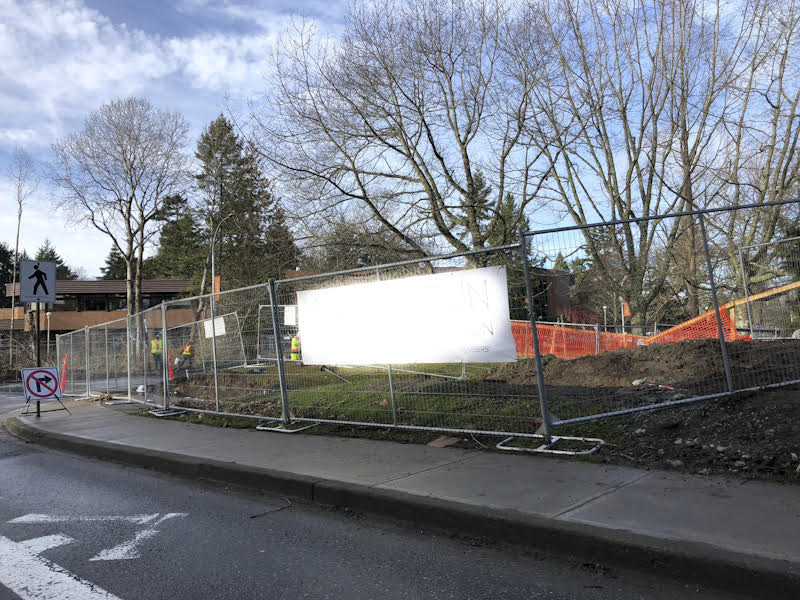
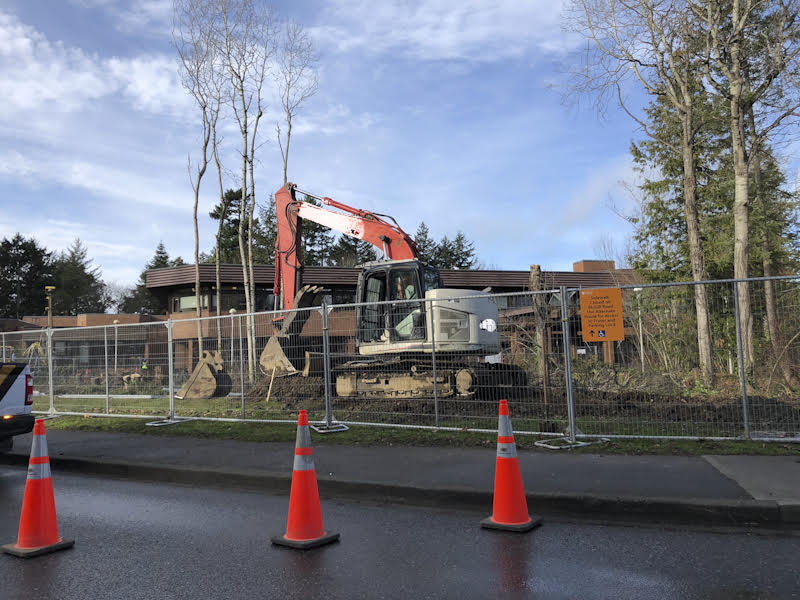
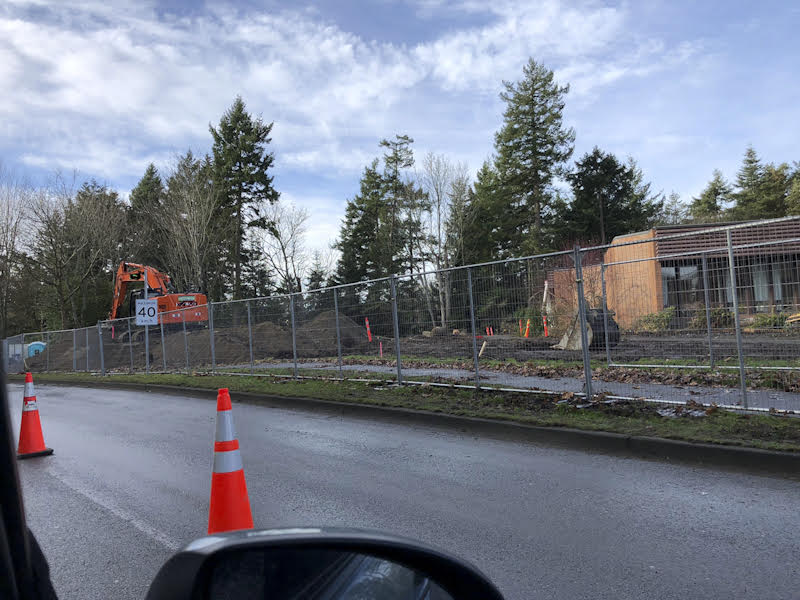
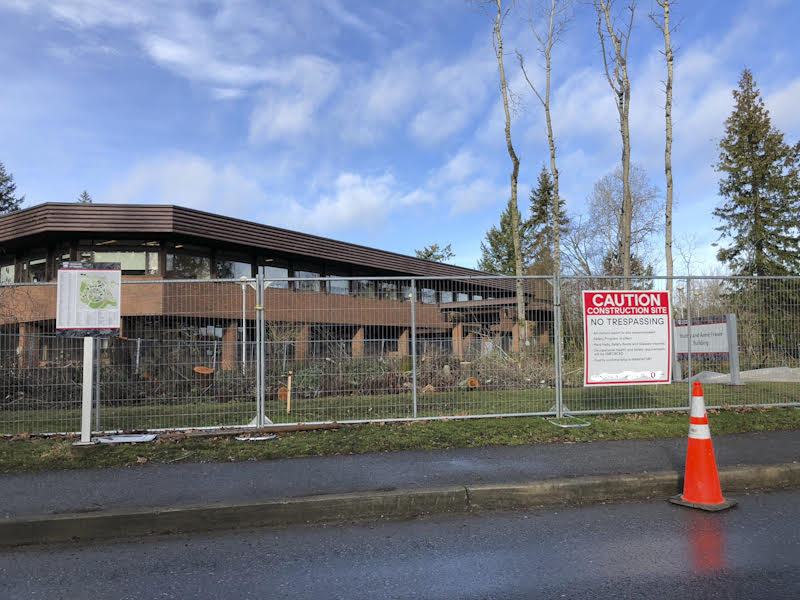
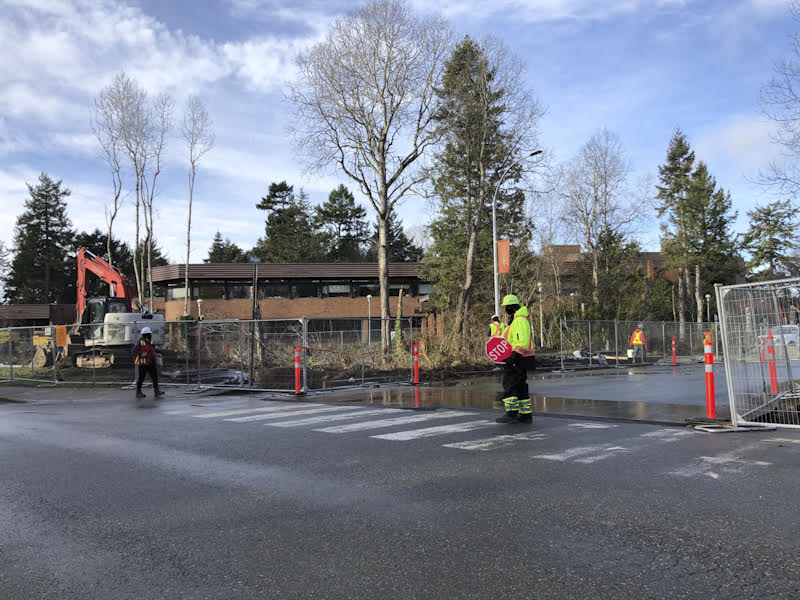
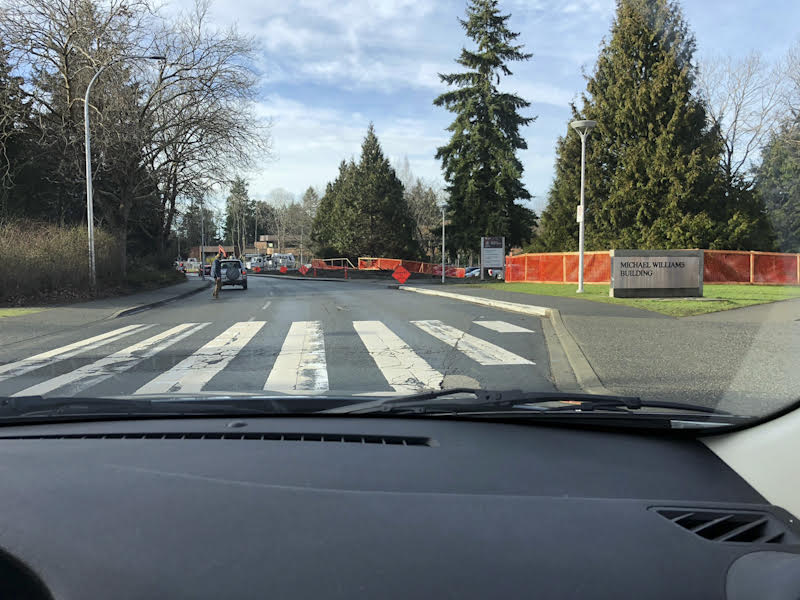
Click here to sign the petition:
https://www.change.org/p/end-the-district-of-saanich-s-collaboration-with-the-development-lobby
